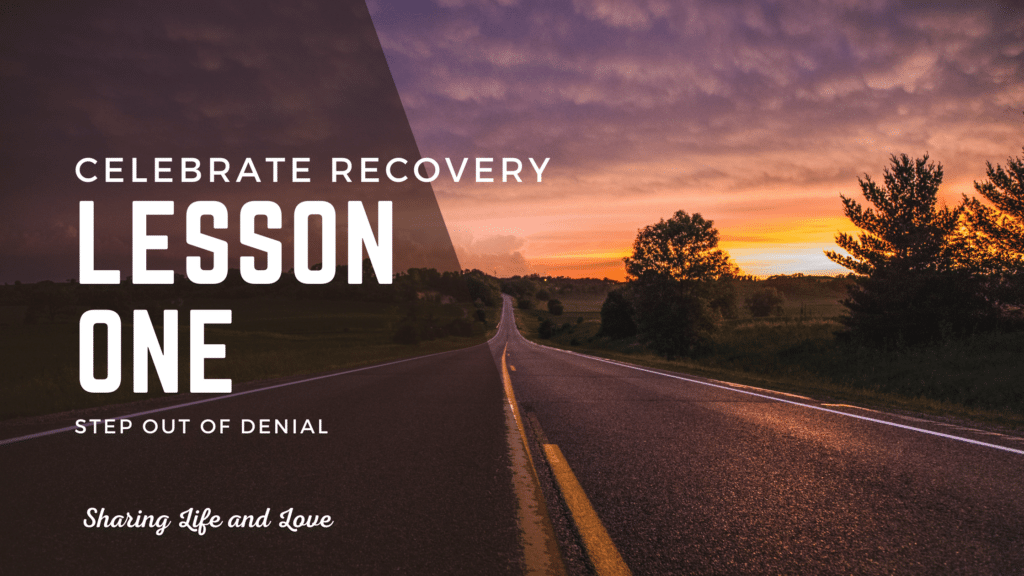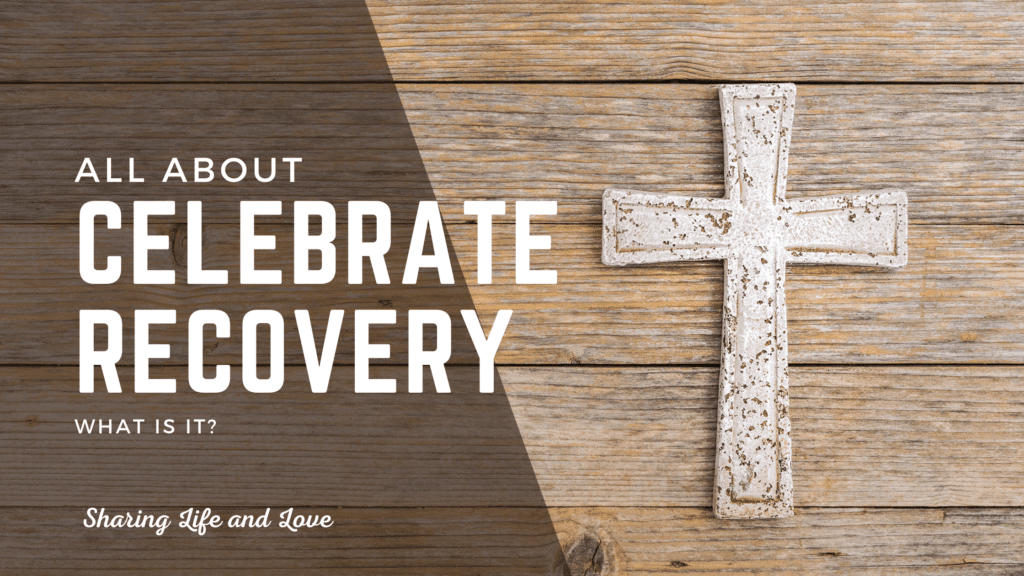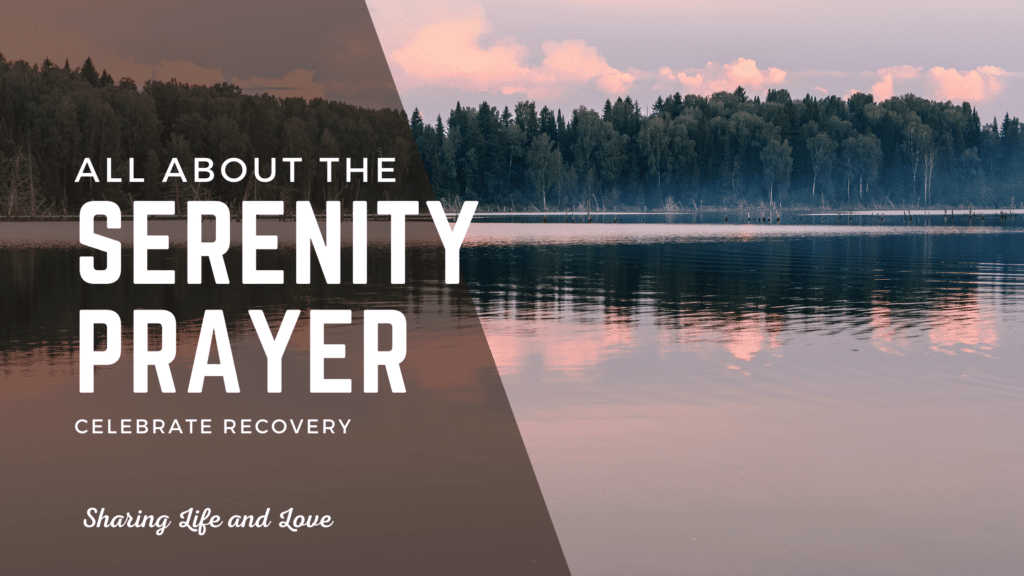The most important step toward recovery happens in Celebrate Recovery lesson 1 because it encourages you to step out of denial. Without this step, you cannot accomplish any of the other steps that are necessary for your recovery. You won’t be ready to move forward until you admit what you are in denial about.
If you feel stuck in your recovery or faith, the answers to get you started on the right track can be found in this article, as it completely guides you through the first steps – regardless of where you are in your journey!
Celebrate Recovery lesson one is a powerful lesson because it begins your walk with Christ – your pathway to peace, your road to recovery!
As it corresponds with Step 1 from Alcoholics Anonymous and Celebrate Recovery, it also goes with Celebrate Recovery’s principle 1. We’ll cover what those items are in the first section of this article, but you don’t have to be a part of any group to join us in this discussion! It’s tailor-made for everyone!
You don’t need any prior knowledge or experience to get started on this journey today! This is the first lesson, and you don’t even need the book. However, you might want a pen and notepad to record your answers to the questions in this article and those found in the corresponding free study guide.
Get started with us today as we begin discussing the great road to recovery!
What is Celebrate Recovery Lesson 1: Denial?
Celebrate Recovery principle one says: Realize I’m not God. I admit that I am powerless to control my tendency to do the wrong thing and that my life is unmanageable. Step 1, which corresponds to this principle, says: We admitted we were powerless over our addictions and compulsive behaviors, that our lives had become unmanageable.
Happy are those who know they are spiritually poor.
I know that nothing good lives in me, that is, in my sinful nature. For I have the desire to do what is good, but I cannot carry it out.
| Lesson | Principle | Step | Bible Verses |
| 1 | 1 | 1 | Matthew 5:3; Romans 7:18 |
Celebrate Recovery loves using acronyms, so with lesson 1, we are given the acronym for DENIAL, which explains what might happen if you do not own up and face the things you are in denial about. This information comes straight from Celebrate Recovery lesson one.
- Disables our feelings.
- Energy loss
- Negates growth
- Isolates us from God
- Alienates us from relationships
- Lengthens the pain
This post may contain affiliate links. Please review our Privacy Policy.
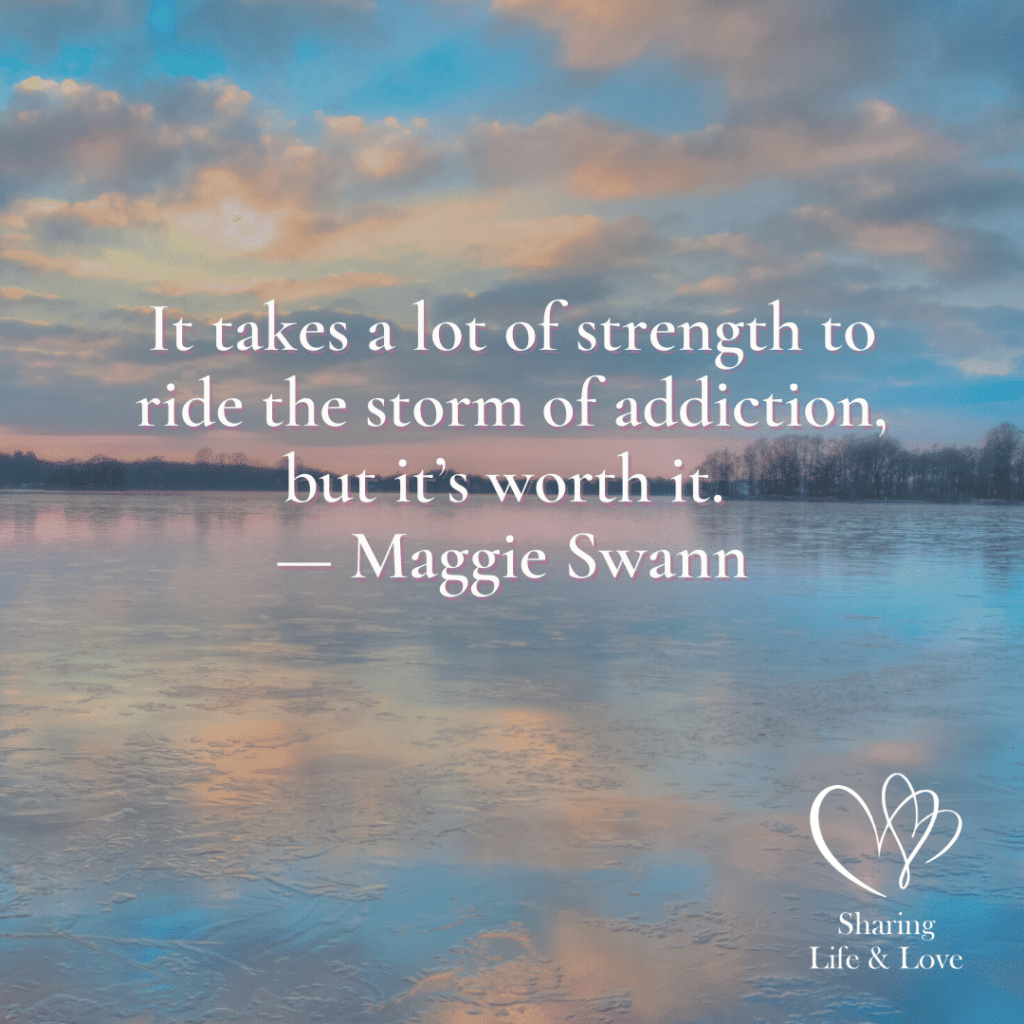
What Does “Celebrate Recovery Lesson 1” Mean?
Within the recovery program, Celebrate Recovery, there are step studies, where you walk through the teachings of Celebrate Recovery with a small group over an extended period of time. Celebrate Recovery is a 12-step, Christ-centered recovery program for anyone who has hurts, habits, or hang-ups. Let’s face it; we all have some of those!
The lessons that will be introduced in these blog posts about Celebrate Recovery are from John Baker’s Celebrate Recovery Participant’s Guide. The first 6 lessons come from Stepping Out of Denial into God’s Grace: Participant’s Guide 1. When you first join a step study, you will probably have a chance to purchase the guide from the group leader.
The Celebrate Recovery leader guide will vary slightly from the participant’s guide, but both were created as part of the CR curriculum by Rick Warren and John Baker. The teachings are based on the Beatitudes, so when you study the Celebrate Recovery 8 principles, you will reference those Bible verses in the New Testament.
What is Denial?
Denial is really just a coping mechanism that people often use to adjust to changing circumstances. Very Well Mind explains that denial is a defense mechanism where you ignore the reality of the situation in order to avoid anxiety. In other words, denial is a way of avoiding the truth of the matter. So, how do you know if you are in denial?
Are You In Denial?
If you are in denial, you will not admit you have a problem or confess to the truth of a situation. Instead, you will ignore the facts, pretending as if they do not exist. Another possible sign of denial is downplaying the consequences of a situation or problem. You might say something like:
- “I don’t have a problem.”
- “It’s not that big of a deal.”
- “That really isn’t a serious issue.”
- “Things will improve with time.”
- “I can quit anytime I want.”
Celebrate Recovery Lesson One Highlights
Lesson 1 Notes
Face and admit your denial. Let’s look at the many reasons why denial is a bad thing, something you must get past, get over, and start facing! I encourage you to talk about your struggles in your small group, step study, or in a diary or prayer journal if you choose to keep one. Even a sturdy notebook would work just fine for this purpose.
1. Denial disables our feelings.
Don’t repress your feelings or freeze your emotions. Understand that expressing your feelings and showing your emotions is part of the healing process. Doing this gives you freedom as you recover from your hurts, habits, and hang-ups. We get the freedom to NOT do the things we were once enslaved to.
Feel your feelings and step out of denial today. In other words, let it all out – have a good cry, laugh a little, or talk about what you are feeling with your small group or step study.
2. Denial can cause anxiety.
Anxiety causes us to lose precious energy because we are constantly looking at the past and worrying about things that may or may not happen in the future. We may even dread the future, which makes it hard to enjoy the life that God intended for us to live. Therefore, we should be mindful and focus on the present – the place where positive change can occur.
Practice the art of mindfulness to stay in the present moment so that you can address your changes. Transfer all of the energy you are losing by staying in denial to God and His word.
Study your Bible, learn new things, strengthen your relationships, and show love toward others. Making positive changes like this will allow you to see reality and truth as you should.
3. Denial stunts growth.
We need to admit it all because we’re as sick as our secrets. It’s not possible to grow in recovery and in your relationship with Christ if you can’t step out of denial and into truth. I know you want to start healing from your hurt, habit, or hang-up as soon as possible, so go ahead and take this step and ditch denial so that you can get closer to precious recovery!
4. Denial shifts us away from God.
God doesn’t want us to walk in darkness; denial keeps us in the dark. God shines the light on the truth, which is where He wants our walk to be. If you follow the lighted path God has for you, your life will go in the right direction.
Not clear what that path is? Try praying more and reading your Bible – really listen to what God is trying to tell you. He doesn’t want you suffering!
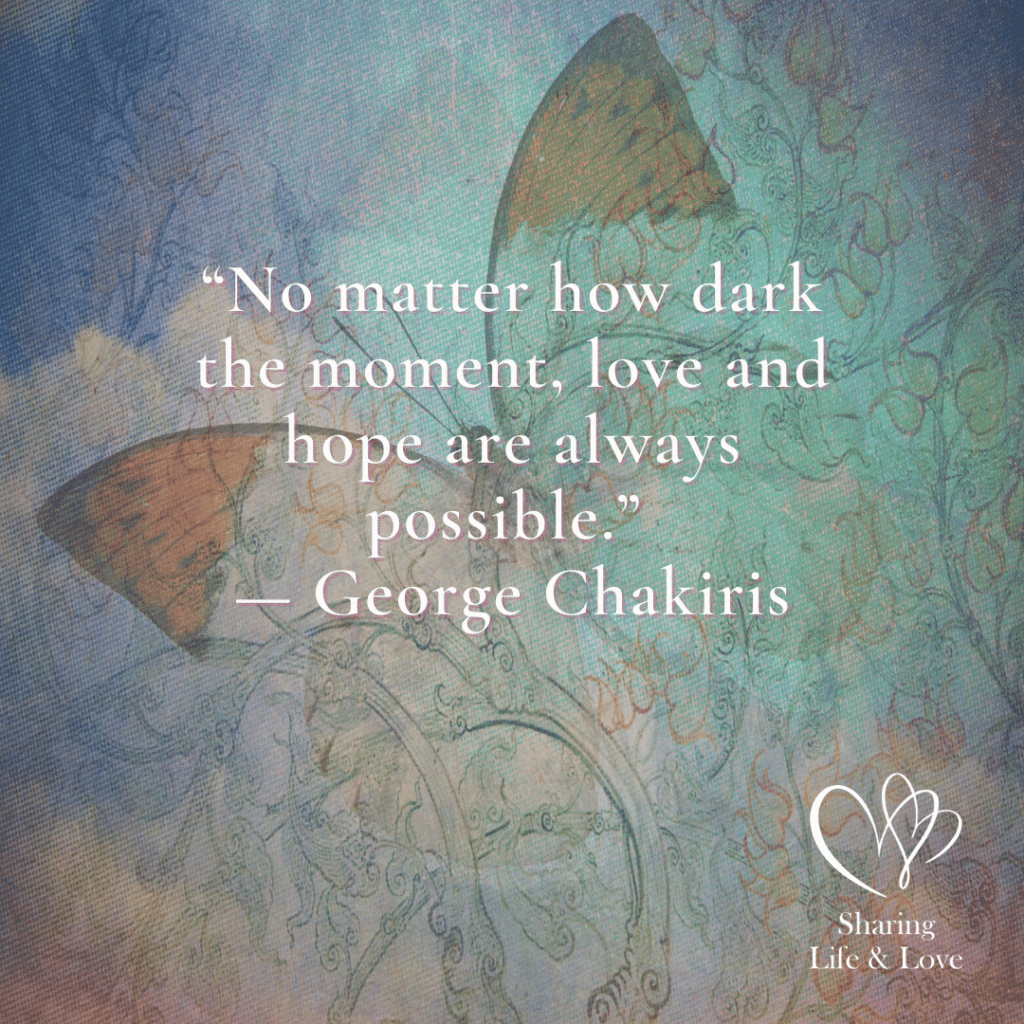
Prayer can improve your life. If you don’t know how to pray or feel uncomfortable doing so, consider starting a prayer journal. I have two listed in my shop – the free Daily Prayer Journal and the Prayer Journal Planner, which is jam-packed full of valuable information! Praying is how we communicate with God, so get on those knees and start talking to Him!
So, what if you are praying and telling God all the things you want and what you need help with? How can you hear what He has to say in response?
God works in mysterious ways, but I would suggest jumping into your Bible and doing a Bible study on the topic of recovery or whatever issue or problem you are facing. Reading the Bible is God’s way of communicating with us.
5. Denial can cause relationship problems.
We falsely believe that we are getting away with something when we go through denial. People know the truth, so we might as well stop lying to each other and fess up. If they don’t know all of your secrets, you are probably wearing them on your sleeve. In other words, they know something is up!
You might as well be honest. Honesty can free you!
You probably think that no one is as bad as you are or could love the real you and accept the horrible things you have done. God can! In fact, He already knows everything!
Plus, you may be surprised to learn that many people have the same or similar hurts, habits, and hang-ups. Your Celebrate Recovery group is there to encourage and support you along your path!
Denial actually alienates us from our relationships because we think people don’t know about the terrible things we have done, which isolates us. Sometimes, you have to take the risk of rejection and trust that your new Christian friends from Celebrate Recovery will understand and listen when you talk about what you’ve been through.
6. Denial lengthens pain.
We often think that denial protects us from pain when really it just allows pain to fester and grow in us. This turns pain into guilt and shame – the last thing you want to feel as you are going through recovery. Build confidence, be proud of yourself, and look to the many ways of how the stories of others can help you along your road to recovery!
You can do this by stepping out of denial and admitting your faults. It may be a painful process at first, but the truth will set you free!
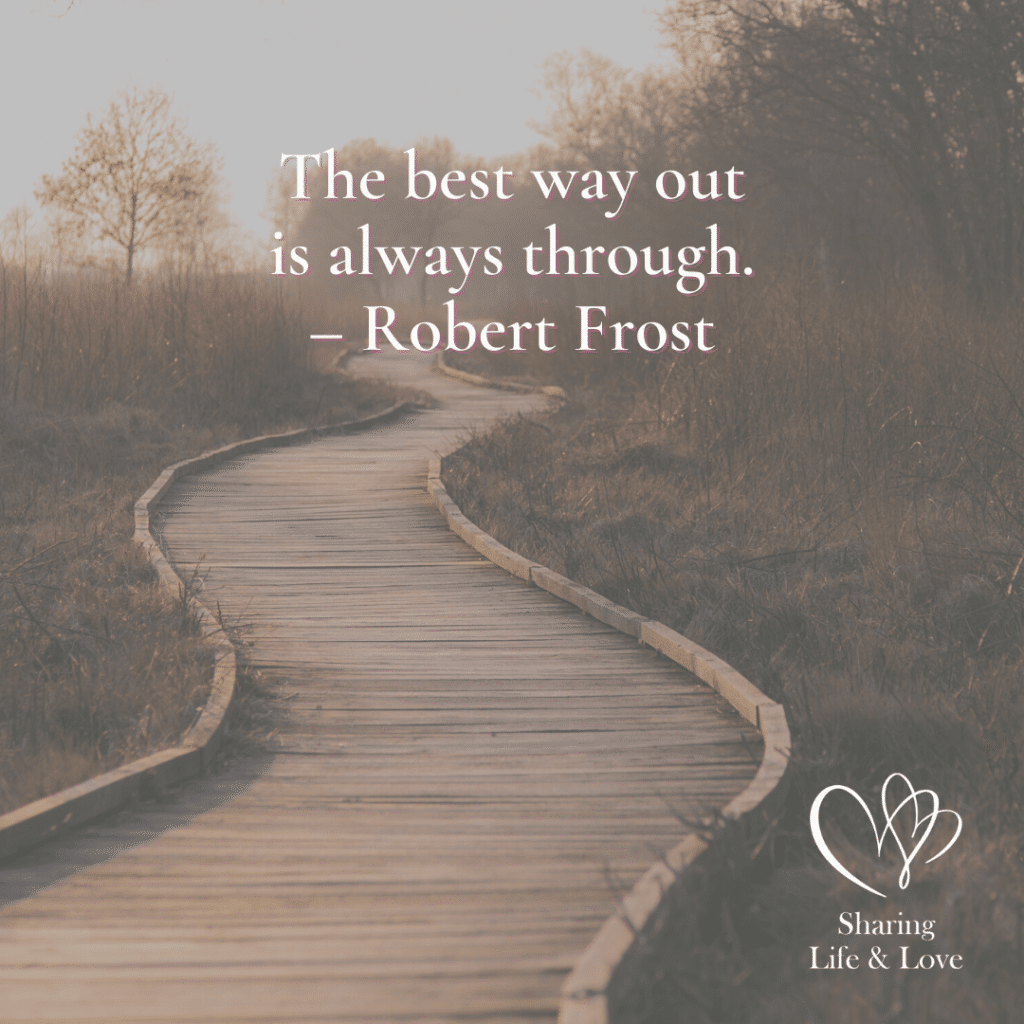
Lesson 1 Questions
- What areas of your life do you have power (control) over? Be specific.
- What areas of your life are out of control, unmanageable? Be specific.
- How do you think taking this first step will help you?
- As a child, what coping skills did you use to get attention or to protect yourself?
- In your family of origin, what was the “family secret” that everyone was trying to protect?
- How do you handle pain and disappointment?
- How can you begin to address your denial?
- In what areas of your life are you now beginning to break the effects of denial?
- Are you starting to develop a support team? Are you asking for phone numbers in your meetings? List them here.
More Valuable Celebrate Recovery Resources
Celebrate Recovery Lesson 1 Scriptures
You can’t heal a wound by saying it’s not there!
They promise them freedom, while they themselves are slaves of destructive habits – for a man is a slave of anything that has conquered him.
He frees the prisoners… He lifts the burdens from those bent down beneath their loads.
They cried to the Lord in their troubles, and He rescued them! He led them from their darkness and shadow of death and snapped their chain.
God is light; in Him, there is no darkness at all. If we claim to have fellowship with Him yet walk in the darkness, we lie and do not live by the truth. But if we walk in the light, as He is in the light, we have fellowship with one another, and the blood of Jesus, His Son, purifies us from all sin.
Stop lying to each other; tell the truth, for we are parts of each other, and when we lie to each other, we are hurting ourselves.
I will give you back your health again and heal your wounds.
A CR Video – Celebrate Recovery Lesson 1: Denial
Pastor Jorge Acevedo from Grace Church shares a great lesson on denial in this short video. You can enjoy watching it and learning more about denial, and experience what a Celebrate Recovery meeting is like. This would be a large group discussion with a lesson.
Free Recovery Lesson 1 Study Guide
I’ve created a Recovery Lesson One Study Guide. You can grab it for free in my shop! This is NOT a Celebrate Recovery official study guide; it’s one I created to go along with the topics mentioned in this lesson – denial and control. Be sure to pick your copy up at no charge so that you can further study today’s lesson!
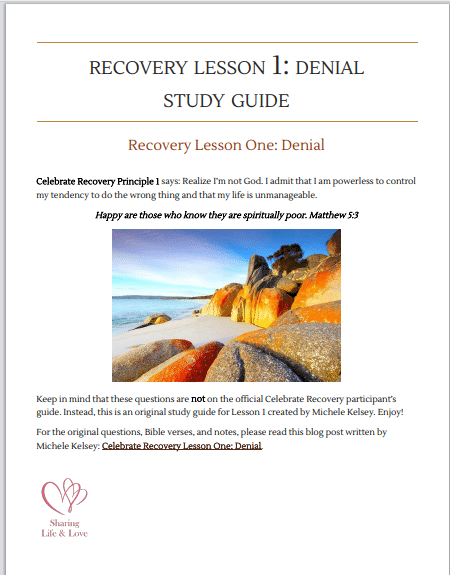
My Story – In Relation to Celebrate Recovery Lesson One
It’s time to get personal; I haven’t shared much about my story, but here’s what I learned about myself from this lesson.
First, let me introduce myself.
My name is Michele, and I am a grateful believer in Jesus Christ who struggles with workaholism, codependency, perfectionism, and anxiety. I celebrate recovery from addictions to alcohol and men.
Control
From this lesson, I learned that I have control over the way I react to people and situations, how involved I am in improving my life, and how much effort I put forth towards my relationship with God. I can also choose the type of people I associate with. Since I try to always stay positive, I’m trying to limit my interactions with people who bring me down.
Unfortunately, I cannot control other people, their reactions, actions, feelings, or behaviors towards me. I realize things will not always go according to my plan, even though I want everything to be perfectly organized all the time. I need to learn to put control in the hands of God and let things go more than I currently do.
Denial
I know that stepping out of denial will help me realize what problems I need to work on and give me a chance to get started on my recovery. To handle pain and disappointment, I need to talk to my support group or let my feelings out (have a good cry in the shower)! The best way I know how to step out of denial is to be involved in a Celebrate Recovery step study and to pray.
I have finally faced reality and broken the effects of denial by realizing I do have issues with control and codependency. I need to learn to trust God more and cope with my stress in effective ways rather than turning to addictions. When I first started Celebrate Recovery and went through a step study, I realized I was addicted to men and struggled with my faith.
My Thoughts on Celebrate Recovery Lesson 1
In future articles, I will explain more about my testimony; I’ll even help you write your own! However, in order to keep this focused on lesson one, I decided to just share the relevant parts of my notes in lesson one from the Celebrate Recovery curriculum books. This way, we can stay focused on the topic at hand.
The most difficult part of lesson one for me was letting go of control and trusting that God has a plan for me – something I am not aware of. I enjoy knowing what’s going to happen in advance and tend not to be very patient, so I get frustrated when the unexpected happens. That is still something I have to work on every single day.
Letting go of control of my life was not something that happened overnight. I actually saw a proactive counselor for years to help me overcome the many battles I faced in my past.
The one thing I had trouble trusting God with was my love life. I wanted to get married and have a family a long time ago. My timing just wasn’t on track with His plan for my life. I am now happily married to the man of my dreams, but I had really given up on God when Prince Charming didn’t knock on my door when I wanted that to happen.
I encourage you to figure out what you are having trouble letting go of and at least admit that it is a problem area of your life. The questions provided in this lesson and the study guide I’ve prepared should help you find those hurts, habits, and hang-ups as you work on your road to recovery so that you can own up to them.
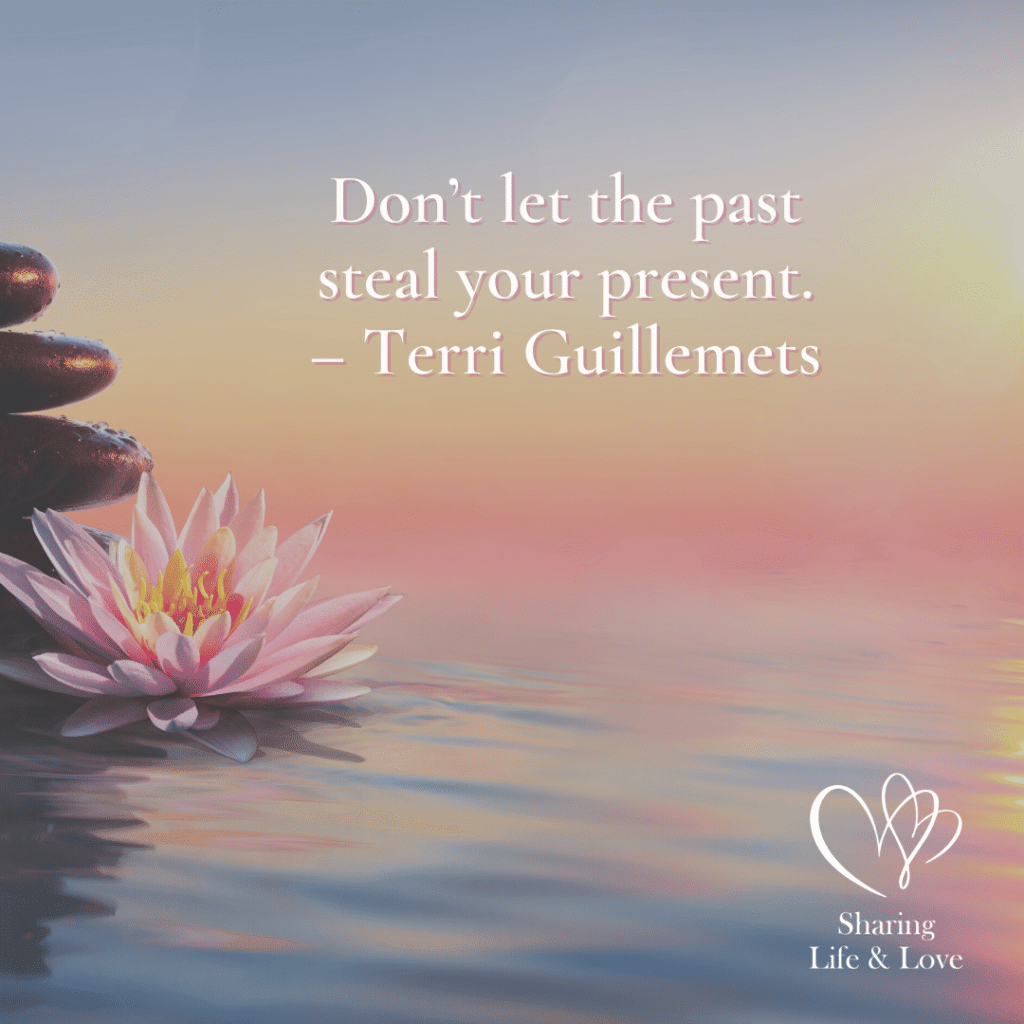
Frequently Asked Questions
What are the 12 steps in Celebrate Recovery?
The Celebrate Recovery 12 steps are based on the 12 steps of Alcoholics Anonymous.
- We admitted we were powerless over our addictions and compulsive behaviors, that our lives had become unmanageable.
- We came to believe that a power greater than ourselves could restore us to sanity.
- We made a decision to turn our lives and our wills over to the care of God.
- We made a searching and fearless moral inventory of ourselves.
- We admitted to God, to ourselves, and to another human being the exact nature of our wrongs.
- We were entirely ready to have God remove all these defects of character.
- We humbly asked Him to remove all our shortcomings.
- We made a list of all persons we had harmed and became willing to make amends to them all.
- We made direct amends to such people whenever possible, except when to do so would injure them or others.
- We continued to take personal inventory and, when we were wrong, promptly admitted it.
- We sought through prayer and meditation to improve our conscious contact with God, praying only for knowledge of His will for us and power to carry that out.
- Having a spiritual experience as the result of these steps, we try to carry this message to others and to practice these principles in all our affairs.
What are the 8 principles of Celebrate Recovery?
The Celebrate Recovery 8 principles are based on the Beatitudes listed in Matthew 5.
- Realize I’m not God. I admit that I am powerless to control my tendency to do the wrong thing and that my life is unmanageable.
- Earnestly believe that God exists, that I matter to Him, and that He has the power to help me recover.
- Consciously choose to commit all my life and will to Christ’s care and control.
- Openly examine and confess my faults to myself, to God, and to someone I trust.
- Voluntarily submit to every change God wants to make in my life and humbly ask Him to remove my character defects.
- Evaluate all my relationships. Offer forgiveness to those who have hurt me and make amends for harm I’ve done to others, except when to do so would harm them or others.
- Reserve a daily time with God for self-examination, Bible reading, and prayer in order to know God and His will for my life and to gain the power to follow His will.
- Yield myself to God to be used to bring this Good News to others, both by my example and by my words.
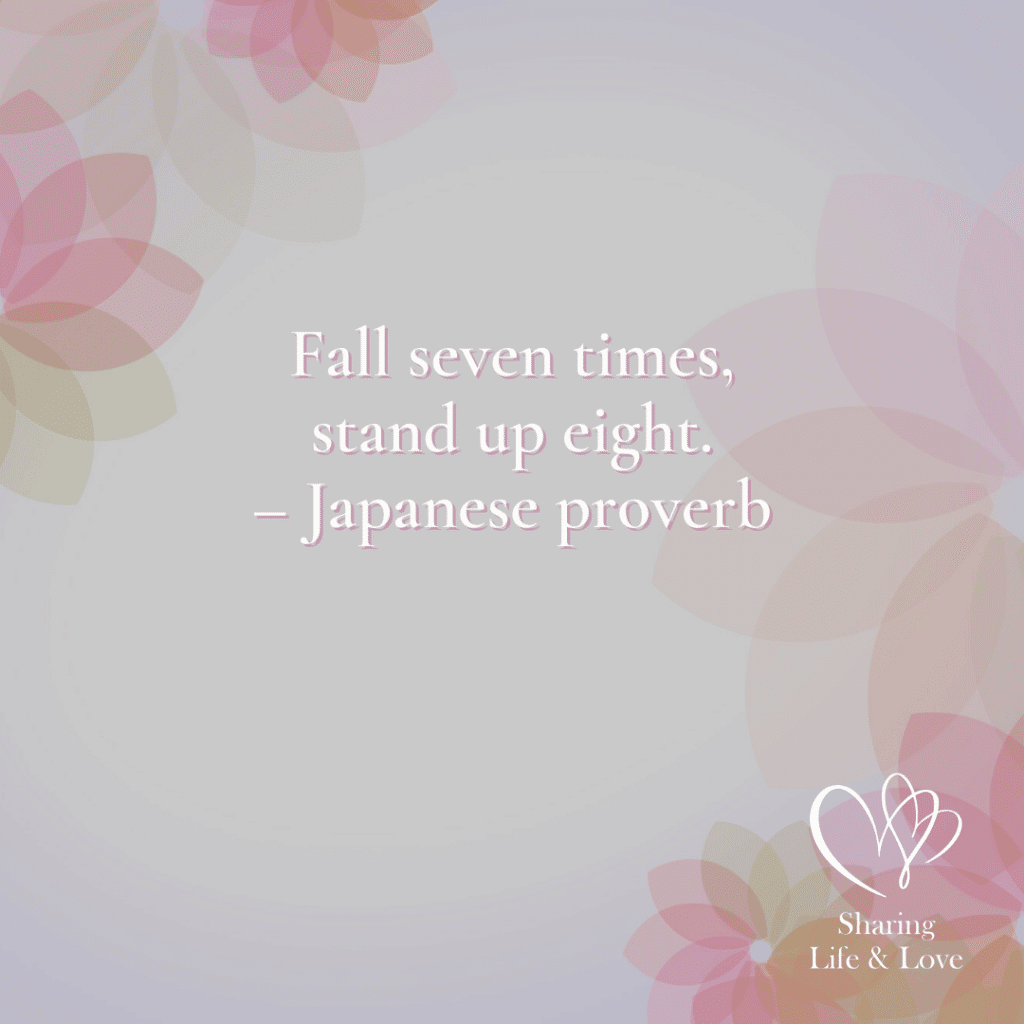
What is the Serenity Prayer?
The Celebrate Recovery Serenity Prayer says: God, grant me the serenity to accept the things I cannot change, the courage to change the things I can, and the wisdom to know the difference. This prayer is also used in Alcoholics Anonymous. Grab a free printable of this prayer!
How do you begin to address your denial?
According to the Mayo Clinic, to address your denial, you should examine your fears, think about the negativity associated with your denial, express your fears and feelings, face the truth, journal your experience, and talk to a trusted ally.
What are the five stages of recovery?
According to Journey Pure, the five stages of recovery include (1) Precontemplation, (2) Contemplation, (3) Preparation, (4) Action, and (5) Maintenance/Recovery.
During the precontemplation stage, addicts are uninterested in help or changing their behavior. As they enter the contemplation stage, they begin thinking about their addictions and the problems associated with them. During preparation, they commit to change and are prepared to take action.
When they hit the action stage, they begin to believe in their ability to change and actively become involved in their recovery. In the final stage of recovery, addicts successfully avoid temptations and triggers that would lead them back to their addictive behaviors.
Conclusion
We have covered A LOT of valuable information today! Here’s a brief overview of what you should now know:
- What is Celebrate Recovery Lesson 1: Denial?
- A Brief Overview of Celebrate Recovery
- Highlights from the CR Lesson 1 Study Guide
- Questions from the Study Guide
- Valuable CR Resources – Bible Verses and a Video on the Lesson
- My Story in Relation to Celebrate Recovery Lesson One
- Frequently Asked Questions – the 12 Steps, 8 Principles, and Serenity Prayer
I would really appreciate it if you would share this article on social media. I put a lot of work into writing this information for you, so I’d love it if you’d help me get the great word out about how wonderful Celebrate Recovery is and bring people to this great program!
If you’d like to share your experiences or answers to the questions in this post, please leave a comment below or contact me via the contact form on this website.
I look forward to learning more about you and your experience with Celebrate Recovery! When you are ready, check out Celebrate Recovery Lesson 2: Powerless!
Be sure to pick up a free printable of the Celebrate Recovery Serenity Prayer.

